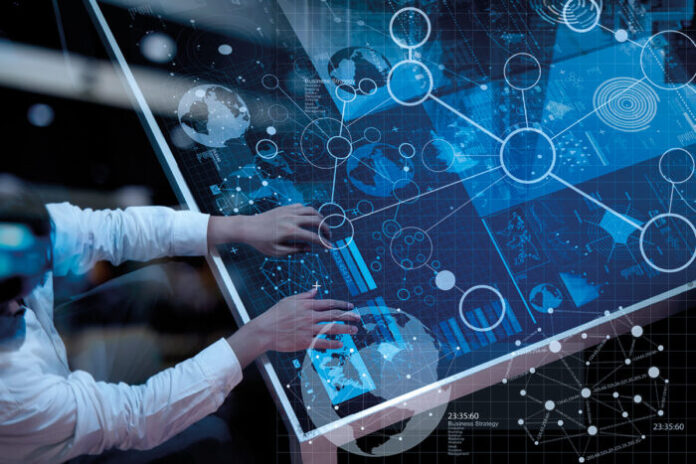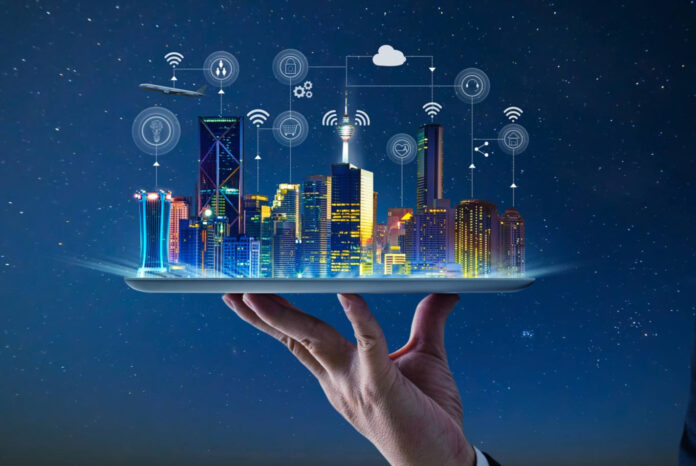“Rise of the Robots” is what some people call it, but is that really what’s going on? Of course not. But there’s no denying the fact that technology is something that will forever continue to disrupt every industry and job sector. There are, of course, some industries that are more affected than others, but no market is completely immune to the constant advancements that technology brings.

Why Are People So Afraid of Technology?
Because no industry is immune to technological advancements, could that be why people fear technology so much? Well, according to CNBC, 37% of workers between the ages of 18 and 24, are afraid that their jobs will be replaced by new technologies. Industries like retail, marketing, logistics, and automotive are some of the biggest industries where technology is leaving a huge mark.
The automotive industry is one that heavily relies on technology just for the simple fact that certain tasks require impeccable accuracy and advanced process technologies in things like the production of e-mobility. Manufacturers like bdtronic are the go-to resource for empowering the future of automotive industry advancements.
If you think about it, it’s perfectly understandable why people have become so afraid of technology. Technology has become a part of our daily lives without us even realizing it. If you regularly ask Siri or Alexa to answer questions for you, you’re using technology… artificial intelligence (AI), to be exact… The normalcy that’s being found in technology is what scares people the most.
Can Technological Disruption Be Embraced?

In case you weren’t aware, all technological advancements are done and made for the betterment of something, whether it be a task or process… They’re made to make life better and easier. In fact, lots of technological disruptions have already been made and embraced, especially with COVID-19 impacts.
There are so many businesses that require employees to commute to the office, but since the emergence of COVID-19, the government issued orders for the public to stay home. Despite those orders, business still needed to be conducted… So what did businesses do? They relied on technology to make business continue. This is called remote work.
Businesses have adapted, adjusted, and embraced technology now more than ever simply because they have to. Technology disruption sounds like this bad thing that workers have feared for quite some time. Maybe the word “disruption” is what made things so scary, but the disruption that people feared so much is the very thing that has allowed them to keep their jobs during the COVID-19 economic slowdown.
So to answer the question of if technological disruption can be embraced? The answer is that it can be embraced, and it has already been embraced. In fact, businesses have actually seen the benefits of technological disruption and have considered utilizing it even after the COVID-19 pandemic has ended.
So now, the question is, what industries and services are “at-risk” for technological disruption? Well, due to COVID-19, you might not make the “disruption” out to be this bad thing that people fear, but there are definitely some industries and services where technology will show up and will more than likely be there to stay.
What Industries and Services are at Risk of Technological Disruption?
Education: New Ways of Learning

For many years, students have traditionally received their education in the classroom, but research is suggesting that the “mass approach” to educating students just isn’t as effective anymore. As technology advances, so does students’ understanding of it. That reason alone is why there is a high chance that AI will be making its way into the classrooms very soon and will educate students in a more personalized way by making lessons more geared towards things they’re interested in.
Healthcare: Doctor’s Visits

Doctors are busy as it is and sometimes aren’t able to see every single patient when their patients need them. So how are doctors meeting the needs of their patients? With virtual visits, especially for things to replace walk-in clinic visits.
Healthcare providers are continuously looking for ways to provide preventive care, and if they can effectively reach their patients via helpful videos and virtual chats, they’re not going to let that technology go. This may negatively impact patients that don’t like the idea of it, but it will certainly lighten the load for doctors.
Customer Service: Meeting Needs Vocally and Digitally

How many times have you called a customer service line and gotten frustrated with the automated systems? All the time. Well, you’re not the only person who knows that… the actual business knows that too and has made major strides and efforts to remedy the issues. That reason is why they’ve leveraged technologies between actual representatives and digital communications like email and chatbots. In fact, those are a few of the biggest trends in customer service.
For customers that don’t like talking on the phone, they have the option to communicate their issues to a real representative via email or chatbot, and for those who want to physically speak to someone, they still have the ability to communicate live with someone.
Is Your Job at Risk?
These are just a few industries and services that have great potential for technological disruption. But that doesn’t mean that the disruption will be a bad thing. A lot of the disruptions have made work life so much easier for people… and get this… they’re still able to keep their jobs, and they just have to learn how to operate and use the various technologies.
So is your job at risk for technological disruption? And if it is, how will you respond to it? Will you tremble in fear or take the challenge head-on and embrace it?









